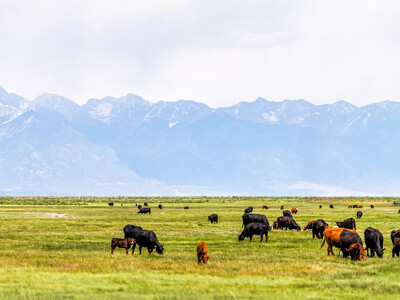Estate taxes
Estate Taxes Are A Threat to Family Farms
Estate taxes are a tax on the transfer of property following a death. The Tax Cuts and Jobs Act included an estate tax exemption, which expires in 2025, that requires an estate to file and pay taxes when gross assets exceed $11.58 million per person. After Dec. 31, 2025, the exemption amount returns to $5 million per individual adjusted for inflation, as set by the American Taxpayer Relief Act of 2012. Previously the Economic Growth and Tax Relief Reconciliation Act of 2001 had gradually raised the exemption amount from $675,000 to $3.5 million in 2009.
Farms with assets above the estate tax exemption often must liquidate some of those assets to meet estate tax obligations, which can reach as high as 40% of the taxable amount. Estate taxes are a particular concern for farmers and ranchers because they are based on the market value of the asset; given the consistent appreciation in agricultural land and assets, this can be very high for farm and ranch families. A limitation on the estate tax exemption means that each year, fewer and fewer farm families will be protected from the estate tax– a clear risk to the continuity of family farms.
A recent study by USDA’s Economic Research Service (America’s Diverse Family Farms: 2019 Edition) indicated that, as of 2018, 98% of the 2-plus million farms in the U.S. were family farm operations. To preserve these family farm operations, serious consideration should be given to eliminating estate taxes or at the very least making permanent the current inflation-adjusted TCJA estate tax exemption. By eliminating estate taxes, or making the current exemptions permanent, U.S. farmers and ranchers will be able to avoid, at least partially, liquidating inherited farm assets to meet the death tax’s financial obligations.

















